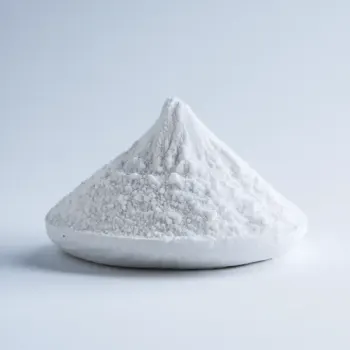
Substitutes for Potassium Bicarbonate in cooking include baking soda with acid, gluten-free baking powder, regular baking powder, a mix of potassium bicarbonate and cream of tartar, and yeast. These alternatives cater to various dietary needs and can be adjusted in recipes for desired results.
For gluten-free recipes, baking soda combined with an acid like vinegar or lemon juice can be used as a substitute for potassium bicarbonate. The ratio is 1:1 for baking soda to potassium bicarbonate, and adjust the acid as needed. The mixture will help batters rise and is suitable for gluten-free flours. Expect a similar texture and taste.
Gluten-free baking powder is available for those avoiding gluten and can replace potassium bicarbonate in recipes. The ratio is 1:1. It's a convenient all-in-one leavener that does not affect the gluten-free quality of the dough or batter. Brands like Bob's Red Mill offer gluten-free options.
Baking soda can be used to replace potassium bicarbonate in many baking recipes. It's more widely available but contains sodium. Use a 1:1 ratio, but you may need to add an acid (like lemon juice or cream of tartar) to balance the pH. Expect similar leavening results. Popular brands include Arm & Hammer and Bob's Red Mill.
Baking powder is a combination of baking soda and an acid, usually cream of tartar. It can be used in place of potassium bicarbonate without the need for additional acids. Use a 1:1 ratio when replacing potassium bicarbonate. Leavening might occur more quickly, so bake immediately after mixing. Brands like Clabber Girl and Rumford are common.
If reducing sodium intake but still needing leavening, a mixture of potassium bicarbonate and cream of tartar can substitute for baking powder. Use 1/4 teaspoon of potassium bicarbonate and 1/2 teaspoon of cream of tartar to replace 1 teaspoon of baking powder. This maintains a sodium-free profile while ensuring proper rise.
For those looking for a natural leavening agent, yeast can be a substitute in bread and some cake recipes. It requires more time for the dough to rise and is not a 1:1 substitution. The amount of yeast will vary depending on the recipe and desired rise. Yeast provides a distinct flavor and texture different from chemical leaveners.

Your ultimate Recipe Box, Meal Planner, and Cooking Class all in one
| Recipe Category | Substitutes |
|---|---|
| Gluten-Free Baking | Baking Soda with Acid, Gluten-Free Baking Powder |
| Leavening in Baking | Baking Soda, Baking Powder |
| Sodium-Free Recipes | Potassium Bicarbonate & Cream of Tartar Mixture |
| Health-Conscious Baking | Yeast |
While potassium bicarbonate is a useful leavening agent for those monitoring sodium intake, there are several substitutes that can be used across a variety of recipes. Each substitute offers its unique benefits and may require slight adjustments to the recipe. By understanding these alternatives, you can adapt your baking to fit your dietary needs and preferences.